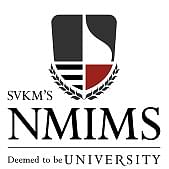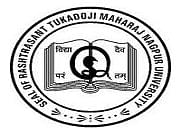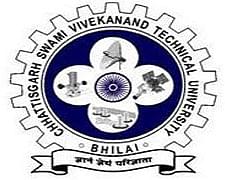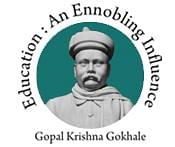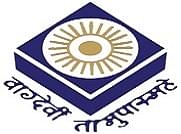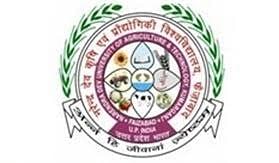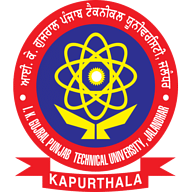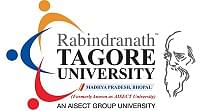Introduction
about Ph.D. in Economics
A Ph.D. in
Economics is a transformative academic endeavor that equips scholars with
advanced analytical skills, theoretical expertise, and a deep understanding of
economic phenomena. India’s BestUniversity that is Central to the Ph.D. experience is the cultivation of a
rigorous analytical mindset, underpinned by a strong foundation in economic
theory, quantitative methods, and applied research. Doctoral candidates are
challenged to critically evaluate existing literature, develop innovative
research questions, and employ advanced econometric techniques to analyze
complex economic phenomena.
How I can apply for admission to the Ph.D. in Economics
Applying for admission to a Ph.D. program in Economics typically
involves several steps and requires careful planning. Here's a general guide on
how to navigate the application process:
1. Research
Programs : Start by researching Ph.D. programs in Economics that align
with your academic interests, career goals, and geographical preferences.
Consider factors such as faculty expertise, research opportunities, program
reputation, and funding availability.
2. Review
Admission Requirements: Review the admission requirements and application
deadlines for each program you're interested in. Typically, Ph.D. programs in
Economics require a strong academic background in economics, mathematics, and
statistics, along with standardized test scores (such as the GRE), letters of
recommendation, a statement of purpose, and transcripts.
3. Reach
Out to Faculty: Consider reaching out to faculty members at your
target institutions whose research interests align with yours. Establishing a
connection with potential advisors can strengthen your application and
demonstrate your genuine interest in the program.
4. Prepare
Writing Samples: Some programs may require writing samples or examples
of your academic work. Prepare polished writing samples that showcase your
analytical and research abilities within the field of economics.
5. Submit
Your Application: Complete and submit your applications by the
specified deadlines. Ensure that all required materials, including transcripts,
test scores, letters of recommendation, and essays, are submitted on time and
according to the program's instructions.
6. Follow
Up: After submitting your applications, follow up with the
admissions offices to ensure that all materials have been received and your
application is complete. Stay engaged with the process and be responsive to any
requests for additional information or interviews.
7. Prepare
for Interviews: Some programs may conduct interviews as part of the
admissions process. Prepare for these interviews by researching the program,
familiarizing yourself with faculty research, and articulating your academic
and research interests clearly.
What is the eligibility for the PH. D in English?
Eligibility requirements for a Ph.D. in Economics can vary
depending on the institution and program. However, there are some common
criteria in applying an affordableuniversity in India that applicants typically need to meet. Here's a
general overview:
1. Educational
Background: Most Ph.D. programs in Economics require applicants to have
a strong academic background in economics or a closely related field. This often
includes holding a bachelor's or master's degree in economics, mathematics,
statistics, or a related discipline. Some programs may have specific coursework
prerequisites in economics, mathematics, and statistics.
2. GPA: Applicants
are usually required to have a competitive Grade Point Average (GPA) from their
previous academic studies. While there is no universal minimum GPA requirement,
most programs seek applicants with a GPA of 3.0 or higher on a 4.0 scale.
3. Standardized
Test Scores: Many Ph.D. programs require applicants to submit scores from
standardized tests such as the Graduate Record Examination (GRE), although some
programs may waive this requirement. Competitive scores on the quantitative and
analytical sections of the GRE are typically preferred.
4. Letters
of Recommendation: Applicants are typically required to submit letters
of recommendation from academic or professional references who can speak to
their academic abilities, research potential, and personal qualities relevant to
graduate study in economics.
5.
Statement of Purpose: Applicants are usually required to submit a statement
of purpose or personal statement outlining their academic background, research
interests, career goals, and reasons for pursuing a Ph.D. in Economics. This
statement should demonstrate a clear understanding of the field and articulate
how the applicant's interests align with the program's strengths.
6. Research
Experience: While not always required, having prior research experience
in economics or a related field can strengthen an applicant's candidacy. This
may include conducting independent research projects, participating in research
assistantships, or publishing academic papers or articles.
7. Interviews: Some Ph.D.
programs may conduct interviews as part of the admissions process. These interviews
provide an opportunity for applicants to discuss their research interests,
academic background, and career goals with faculty members or admissions
committees.
It's important for prospective applicants to carefully review
the specific eligibility requirements and application instructions for each
Ph.D. program they are interested in, as requirements may vary between
institutions and programs. Additionally, applicants should reach out to the
admissions offices or program coordinators with any questions or concerns
regarding eligibility and application requirements.
How long does it take to complete the Ph.D. in Economics?
The duration of a Ph.D. in Economics program at the top university of India can vary depending on
several factors, including the program structure, the student's prior academic
background, research progress, and any individual circumstances. However, on
average, completing a Ph.D. in Economics typically takes around 4 to 6 years of
full-time study.
Here's a breakdown of the general timeline for completing a
Ph.D. in Economics:
1.
Coursework (First 1-2 years): In the initial phase of the
program, students typically complete coursework to build a strong foundation in
economic theory, quantitative methods, and specialized areas of interest.
Coursework may include advanced microeconomics, macroeconomics, econometrics,
mathematical economics, and elective courses related to the student's research
interests. The duration of the coursework phase varies, but it generally spans
the first 1 to 2 years of the program.
2. Comprehensive
Exams (End of coursework phase): Towards the end of the coursework
phase, students may be required to pass comprehensive examinations covering
core areas of economics. These exams assess the student's mastery of
foundational concepts and readiness to advance to the research phase of the
program.
3. Research
and Dissertation (Remaining years): After completing coursework and
passing comprehensive exams, students focus on conducting independent research
under the guidance of a faculty advisor or dissertation committee. This phase
involves formulating a research topic, conducting empirical analysis or
theoretical modeling, writing a dissertation proposal, and ultimately
completing and defending the doctoral dissertation. The research and
dissertation phase typically spans the remaining years of the program, with the
length varying depending on the complexity of the research project and the
student's progress.
4. Defense
and Graduation: Once the dissertation is completed, students must
defend their research findings before a dissertation committee. Upon successful
defense of the dissertation, students are awarded the Ph.D. in Economics and
graduate from the program.
While the timeline outlined above provides a general
overview, it's important to note that the actual time to completion may vary
for each student. Factors such as the complexity of the research project,
availability of data, publication requirements, and any personal or
professional obligations can influence the duration of the Ph.D. program.
Additionally, some students may choose to pursue part-time study, which can
extend the time to completion. Ultimately, the Ph.D. journey in Economics is a
rigorous and intellectually demanding process that requires dedication,
perseverance, and a commitment to advancing knowledge in the field.





